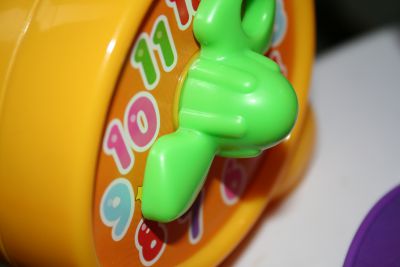A consistent and stable routine is helpful for your baby, toddler or child's development. Having meals at regular times and fixed bedtimes each night, enables your child to structure their day and this contributes to your child's overall sense of security and well being.
Children at this stage haven't began developing the concept of time, so having a consistent and structured routine enables your child to understand what is about to happen. For instance, having a pre-bedtime routine signals to your child that it is nearly time to go to bed.
Although a daily routine is beneficial for your child, you need to be flexible for unexpected changes that may occur throughout the day.
What are the pros?
Advance Planning – Your child is happy knowing that every morning they go to childcare, or when they come home they can have a sweet treat. In this way, a routine helps your child to plan ahead. They can organize their activities around their routine so that they can get the most out of each day.
Consistency – Your child enjoys a consistent environment. Of course a change within the routine is exciting for your child, such as a special outing but a consistent routine full fills your child's psychological need for stability. Routine provides a secure foundation.
Control – If your child has some choice in their routine (choosing when to play with toys and read books etc), this predictable routine allows your child to have some degree of control over their world. This is great for improving self esteem.
What are the cons?
Resistance – Your child may be already testing your authority (which is very normal for children to do) and trying to enforce a routine can be exhausting and frustrating. As you are well aware, it is very hard to make your child do something that they do not want to do. You should question whether a particular part of your routine is absolutely necessary to your child's development.
Constraint – You shouldn't have a routine just for the sake of having one. It can limit your child's freedom in a variety of ways. Such as limiting the amount of control your child has in any situation, your child may become bored with doing the same thing day in and day out exactly the same way. However your child may become unsettled if the routine breaks down for some reason.
Keeping to Routines
In order to establish a consistent and stable routine, it is important for you to try and encourage your child to understand why it is necessary. You can increase your child's commitment by explaining the purpose of any given rule. For example, it's better to tell your child “I want you to eat your lunch now, otherwise you are going to be hungry when we go to the park” than to say “Eat your lunch now because I said so”. The more your child understands about routines, the more likely your child will follow it.
Encourage your child to anticipate the next part in their routine. For example, during the morning remind your child what the routine holds for them in the afternoon. Talk positively about the next part of the routine.
If your child begins to complain about part of the routine, ask them what they would like changed. Involve your child in the routine and discuss alternative ways in which your child can organize their day. When you involve your child during this process, they will much likely do it as they helped out with the construction of the routine. As a parent you listened to your child's suggestions and implemented them into the routine.
Unexpected Changes
If there is flexibility in your routine, your child will be less unsettled if there are unexpected changes in the routine. Learning to cope with unexpected changes is part of growing up and your child will learn to handle these interruptions in the routine with confidence.
Example of a Bed Time Routine
Below is an example of a bed time routine that you can use for your child to get an idea of how a routine is set for your child's bed time. It is important to remember that routines need to be consistent in order for it to work efficiently in your family.
- Take a bath / shower.
- Put pyjamas on.
- Brush teeth.
- Read a book or listen to a story.
- Lights out.
- Time to sleep.
Routines are important for your child. When you establish a routine for your child, have a chat with them about it so they can have some control over what they would like to do. Just remember that with routines, you have to be flexible...










